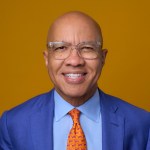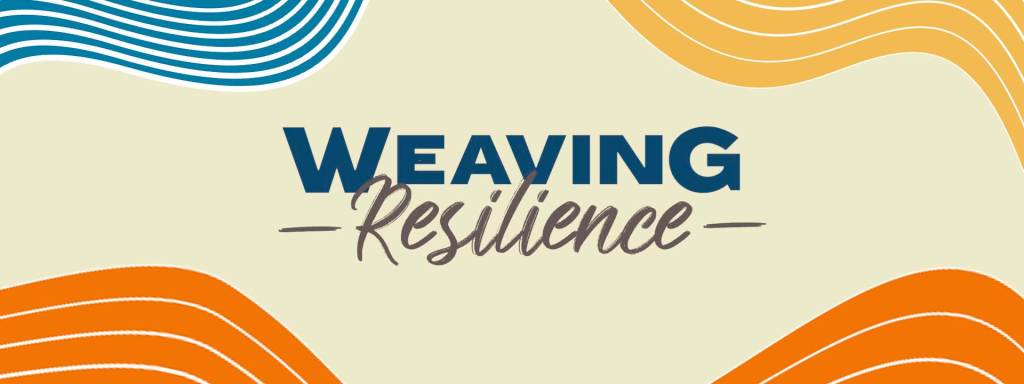
The essential elements for a functioning and inclusive democracy are a vibrant civil society and robust civic space. Together, they allow people to engage and have voice in the decisions that affect their lives. However, across the world, especially in the Global South, we’re witnessing a concerning rise in authoritarianism and a compounding decrease in democratic values that, together, are deepening inequality.
Since March 2020, 155 countries have placed new restrictions on public assemblies. As societies grapple with this changing reality, the ability for people, organizations, and movements to engage is hampered by increasing restrictions. Without robust civic space, there is no place for engagement and voice, and people who live on the margins are systematically excluded from the decisions that affect them most.
Today, my colleagues and I are honored to introduce Weaving Resilience, our new $80 million initiative to support civil society organizations throughout the Global South. Developed with our partners on the ground in eight regions, this initiative will strengthen and connect civil society organizations and movements on the frontlines of the fight for social justice so they can safeguard civic space and flourish for the long haul.
Accessibility Statement
- All videos produced by the Ford Foundation since 2020 include captions and downloadable transcripts. For videos where visuals require additional understanding, we offer audio-described versions.
- We are continuing to make videos produced prior to 2020 accessible.
- Videos from third-party sources (those not produced by the Ford Foundation) may not have captions, accessible transcripts, or audio descriptions.
- To improve accessibility beyond our site, we’ve created a free video accessibility WordPress plug-in.
At the Ford Foundation, we believe that the people closest to a problem are also closest to its solution. So, in the generational contest between authoritarian ideology and democratic values, we must listen to and learn from the individuals, communities, and organizations who have been leading the way courageously for years, particularly in the Global South. In our eyes, these organizations—such as Dejusticia, the Kenya Community Development Foundation, and PILnet—have not only resisted and persisted in the face of extreme opposition, they have modeled how to protect civil society, preserve activism, and further the ideals that we believe will help advance equality.
This new initiative stems directly from—and speaks directly to—the needs of the organizations we fund. During the past few years, my international colleagues working within Ford’s Civic Engagement and Government program have been listening to our grantees to understand their challenges and searching for ways to strengthen civil society organizations in the Global South. Together, they identified three central challenges facing civil society: institutional resilience, strategic relevance, and holistic well-being.
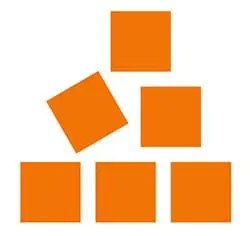
Institutional resilience
Civil society organizations in the Global South operate within a web of complex and rapidly changing standards, from convoluted tax laws to undue audits and inspections. Authoritarian governments weaponize these regulations to denigrate civil society and force organizations into closure. As a result, civil society is forced to dedicate their time and resources to navigating these financial and legal obstacles in order to simply survive—often at the cost of their day-to-day operations.
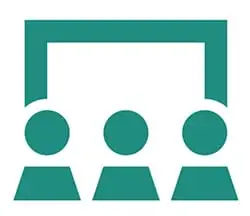
Strategic relevance
Undemocratic regimes frequently frame civil society organizations as agents of foreign interests or enemies of the very communities they serve. These attacks are designed to delegitimize, and they require a coordinated response that can both counter misrepresentation and present new, creative, and proactive strategies for change.
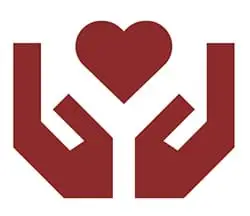
Holistic well-being
Civil society organizations face challenges not only to their operations but to their team members’ very lives and livelihoods. In nations across the Global South, these threats are imminent and include everything from physical and emotional strain to security threats against staff and their families.
Weaving Resilience will establish interrelated yet highly localized resource hubs in eight regions across the Global South so organizations can empower each other with the expertise and tools they need to build and sustain social change. Too often, these kinds of initiatives are based in or led from the Global North; crucially, this initiative’s hubs will be housed and led in the Global South by southern-based organizations.
These hubs will become centers of excellence for civil society resilience in their respective regions, providing strategic assistance and guidance on security and institutional adaptability. Each will be grounded in its unique local context, meeting civil society’s three central challenges in culturally appropriate and relevant ways.
Traditional Philanthropy
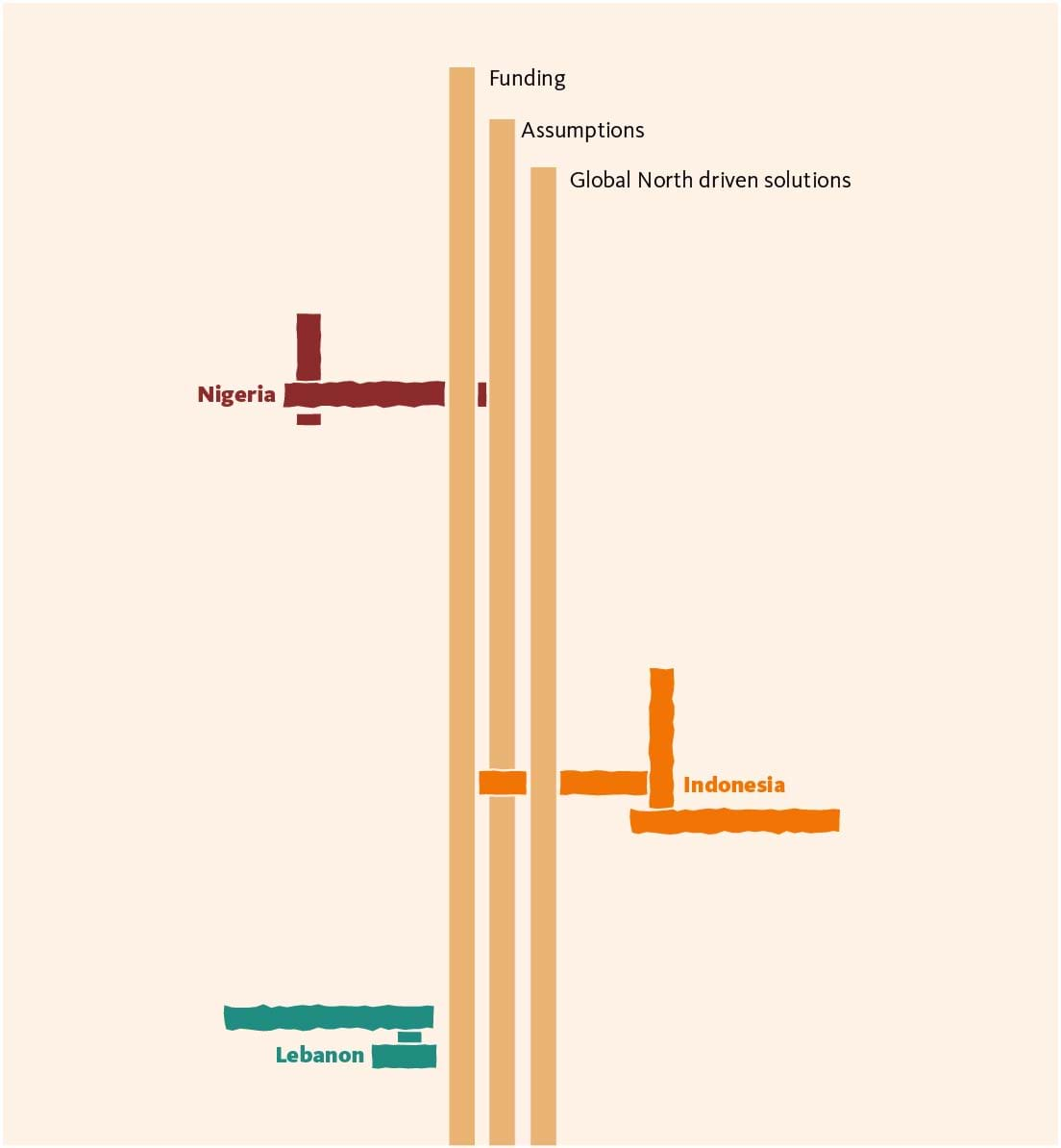
Traditional models of philanthropy often reflect the biases and assumptions of donors in the Global North, with operations and decision-making based far from the communities they seek to help. As a result, the people closest to the problems do not have voices in the solutions, critical cultural sensitivities are overlooked, and funding is imprecise and ineffective.
Weaving Resilience
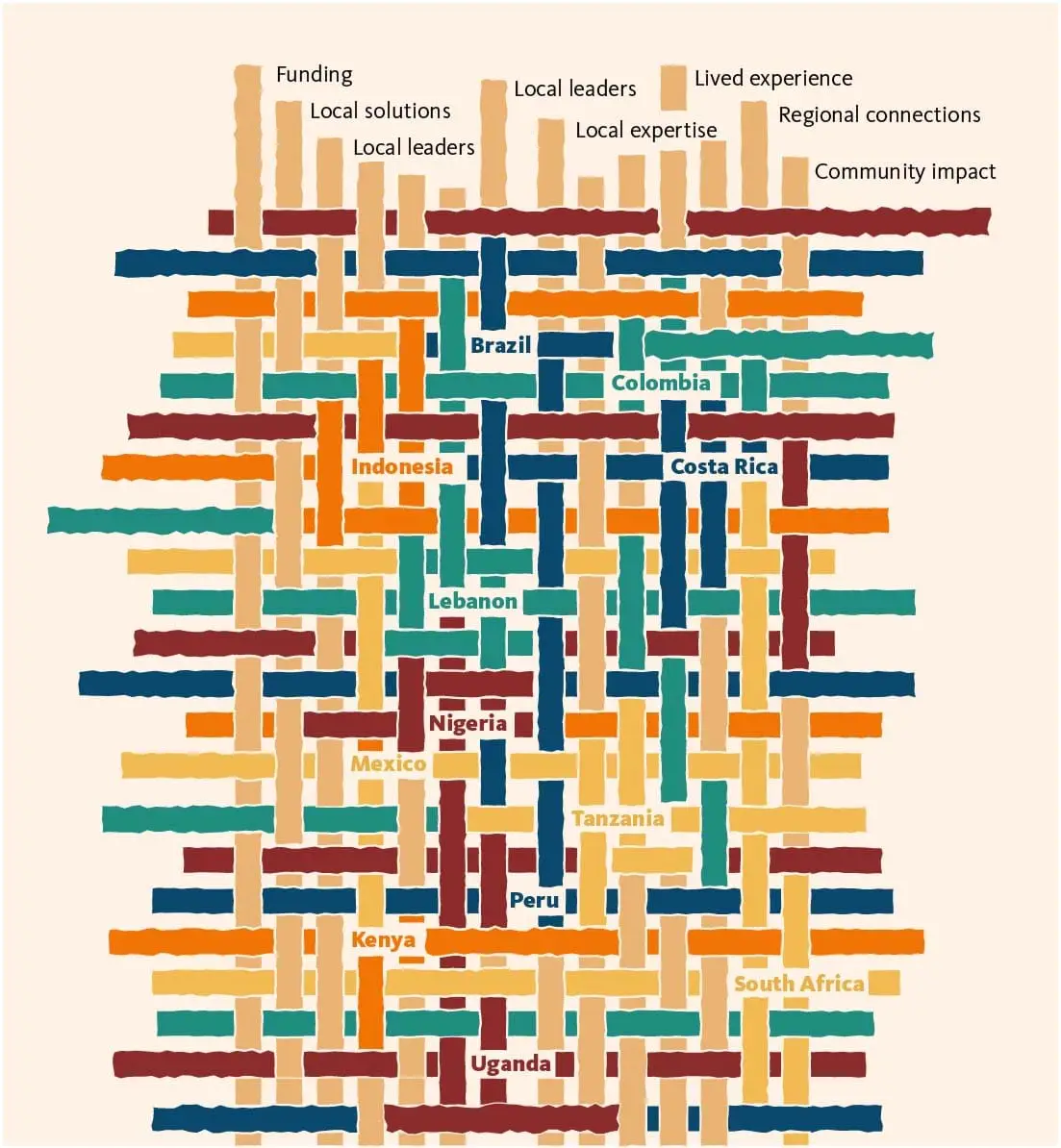
Weaving Resilience’s approach to philanthropy sends funding directly to innovative leaders in the Global South and centers operations and decision-making within the most affected regions. This allows the people with the greatest local expertise to drive bold solutions and build supportive networks that spread impact to other communities.
Simply put, we are stitching together a peer-to-peer network of resources built by the Global South, for the Global South.
The organizations we’re supporting are already creating impact in their regions. Enlaza Sur, the new regional hub co-created by Dejusticia, Compartamos con Colombia, and other civil society organizations and allies, has begun to serve more than 30 organizations in the Amazon, the Caribbean, the Andean region, and the Insular, Orinoquía, and Pacific regions in Colombia. The group will grow to strengthen organizations in Perú and Venezuela as well, and all will receive intensive support in areas that they have identified as needing, from making sure digital platforms are secure to training and retaining staff. Guided by the principles of diversity, equity, and inclusion, the cohort will work to integrate and expand their collective voice as organizations essential to civil society.
Another participant, the Kenya Community Development Foundation, has deep expertise in supporting communities to gather resources and build community philanthropy. They help organizations develop organizational endowments that serve as powerful foundations for civil society. Their knowledge will be shared with other regions in the Global South, thereby building a network of financial resilience among civil society organizations.
As with every new undertaking, we anticipate challenges, particularly as we work to convene stakeholders across cultures, countries, and continents. Weaving Resilience will require radical humility at every stage—a continued awareness of the damages of imperialism and colonialism, still abundant across the Global South—as well as a commitment to subvert the biases that philanthropy has too often reinforced.
Our task, as ever, is to engage with our partners around shared values of racial equity, gender equity, disability justice, and human dignity, and to defer to local leadership as our guiding lights.
We invite more funders to join us in contributing to this growing movement across the Global South. Philanthropy’s resources must not remain concentrated in the Global North, directed and defined by the priorities of just one part of the planet. To take on the global crisis of inequality, we need to recognize the role each country and region plays in advancing justice and build a truly international ecosystem of resilience to champion open, inclusive societies free of authoritarianism. We must invest in a network of mutual responsibility, one that requires us to rethink long-held practices and look to our friends, colleagues, and allies in the Global South for leadership.
In weaving a more resilient civil society—the shared fabric of our collective institutions—we will move toward a broader, richer ecosystem for those under siege, and for all those united in our global movement for equality.
To learn more about Weaving Resilience, please contact us at [email protected].
